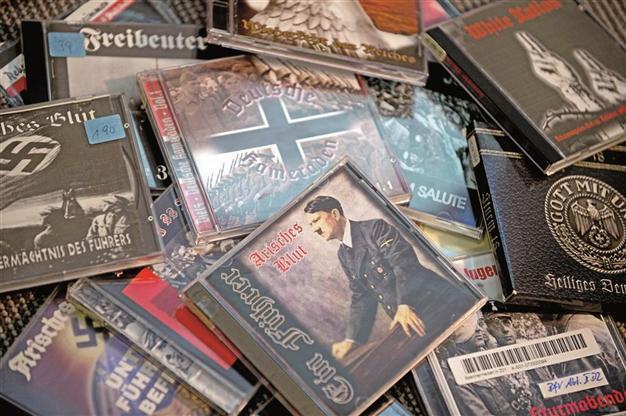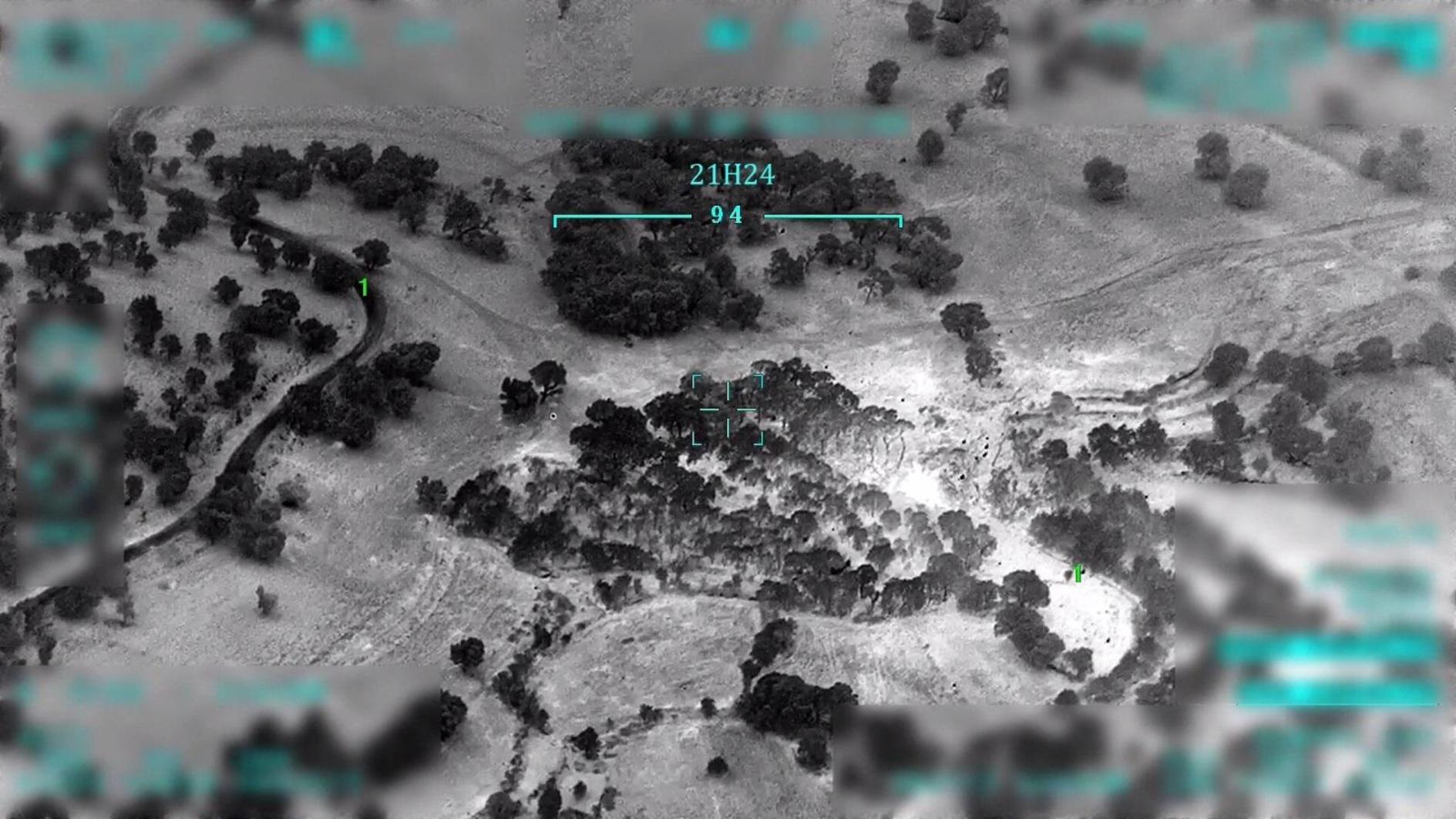German police use software to identify neo-Nazi songs
DRESDEN - Agence France-Presse

Seized CD’s of neo-Nazi music are displayed at the headquarters of Saxony’s regional police. Saxony officials are calling for police around the country to submit music samples to increase the size of the database for the new program. AFP photo
German police are touting a new high-tech tool to identify illegal neo-Nazi songs in seconds, dubbed “Nazi Shazam” after popular music identification software.Authorities in the eastern state of Saxony hope to use their brainchild to identify and shut down Internet radio stations that play banned songs.
“Music is an introduction to right-wing extremism, we all know that, so for me this is very important,” Saxony Interior Minister Markus Ulbig told reporters Dec. 11 in the state capital Dresden. Neo-Nazi hard rock has long been an important recruiting tool for far-right groups, back to the days when CDs were handed out at street demonstrations.
The German Federal Review Board for Media Harmful to Minors blacklisted 79 songs last year for espousing neo-Nazi ideology or having racist lyrics, news magazine Der Spiegel reported.
The new Saxony prototype creates a unique code or “digital fingerprint” based on the frequencies in songs, and then checks music being broadcast on Internet radio, or submitted on a CD or MP3, against a database of gathered “fingerprints” from banned music.
Faster than men
“The program is obviously faster than men and needs no sleep,” said Martin Strunden, a spokesman for the state interior ministry. Previously, officers had to listen to songs and compare lyrics with a database of restricted music.
“It would take a day or two just to listen to and transcribe an album,” said Jens auf dem Keller, who is in charge of media oversight for the Saxony police. “Digitalized, it takes just moments.” Similar technology is used in the smart phone application Shazam, which captures audio playing on the radio or at a concert and identifies the artist and song title.
Saxony officials are calling for police around the country to submit music samples to increase the size of the database, which currently contains about 3,500 restricted songs, before they begin using it. The impetus for the new software came after officials noticed a marked increase in far-right Internet radio stations in 2011 and 2012.
Police development of more sophisticated Internet surveillance comes as far-right groups grow increasingly savvy in their own online outreach.
Strategies changed
“The strategies of the neo-Nazis, they’ve changed in the last years, they’ve moved from the real world more and more to the virtual world,” said Julia Wolrab, with the association “Against Forgetting - For Democracy,” which offers advice to people confronted with extremist propaganda online. In a 2013 report, the state-operated German media monitoring organization jugendschutz.net found for the first time that far-right groups used smart phone applications to deliver music and TV program to supporters, and adopted barcode-like QR codes to recruit potential members.
The report also found a nearly 50 percent rise in far-right postings on social networks from 2011 to 2012, and a trend toward social media campaigns that eschew traditional Nazi symbols to appeal to mainstream users.
Police in Saxony hope to develop a smart phone application so officers can monitor music at live concerts, but a spokesman said legal questions must be answered before that is possible.
Other German police departments say they are waiting to see how the program works in Saxony before potentially adopting it.
Plans dropped for reprint of ‘Mein Kampf’
BERLIN – Reuters
BThe German state of Bavaria announced Dec. 11 it had scrapped plans to publish a new academic reprint of Adolf Hitler’s “Mein Kampf” with critical commentary when its legal power to ban the book expires in 2015.
The southern German state owns the copyright and has banned any republication.
But the copyright expires at the end of 2015, 70 years after the author’s death. Bavaria had been planning to then publish a new edition with critical commentary from the Munich-based Institute for Contemporary History .
“Many conversations with Holocaust victims and their families have shown us that any sort of reprint of the disgraceful writings would cause enormous pain,” said Bavarian Science Minister Ludwig Spaenle, adding that Bavaria would continue to take legal action against anyone who tries to publish even excerpts.” Austrian-born Hitler wrote the autobiographical “Mein Kampf” (My Struggle) in prison after his failed Munich coup.
















